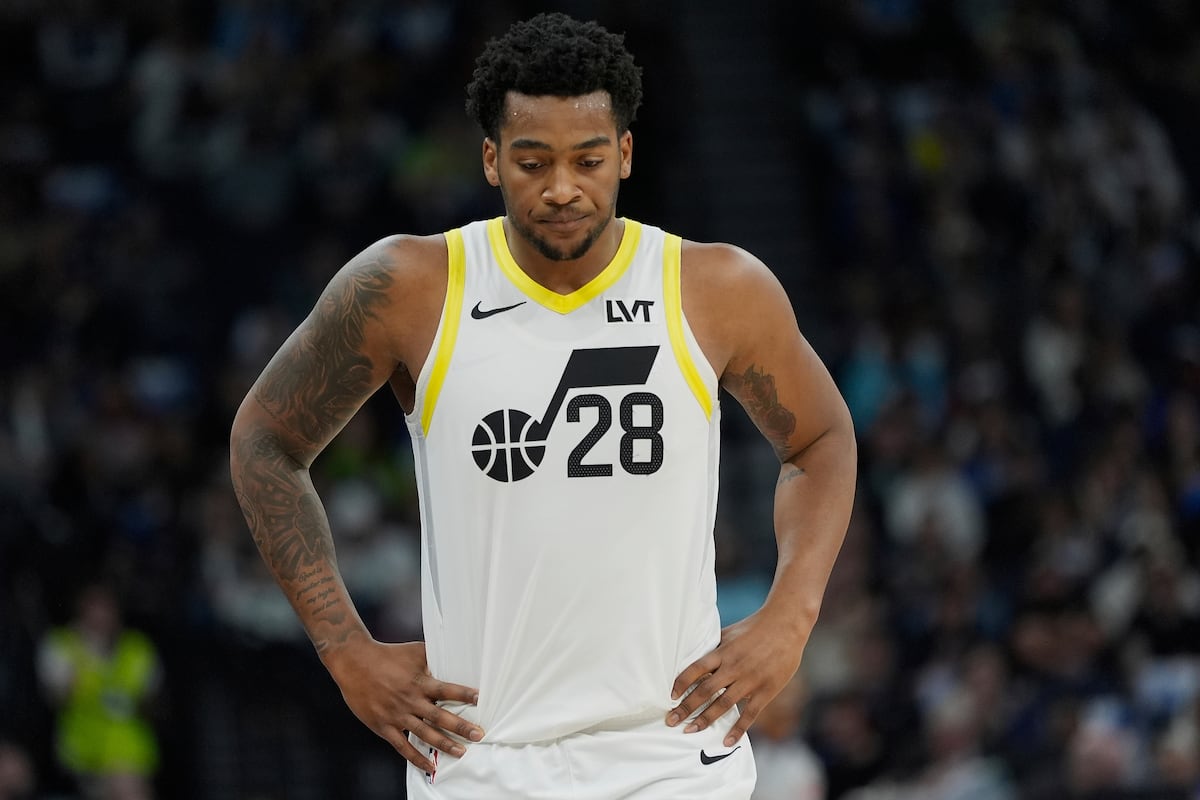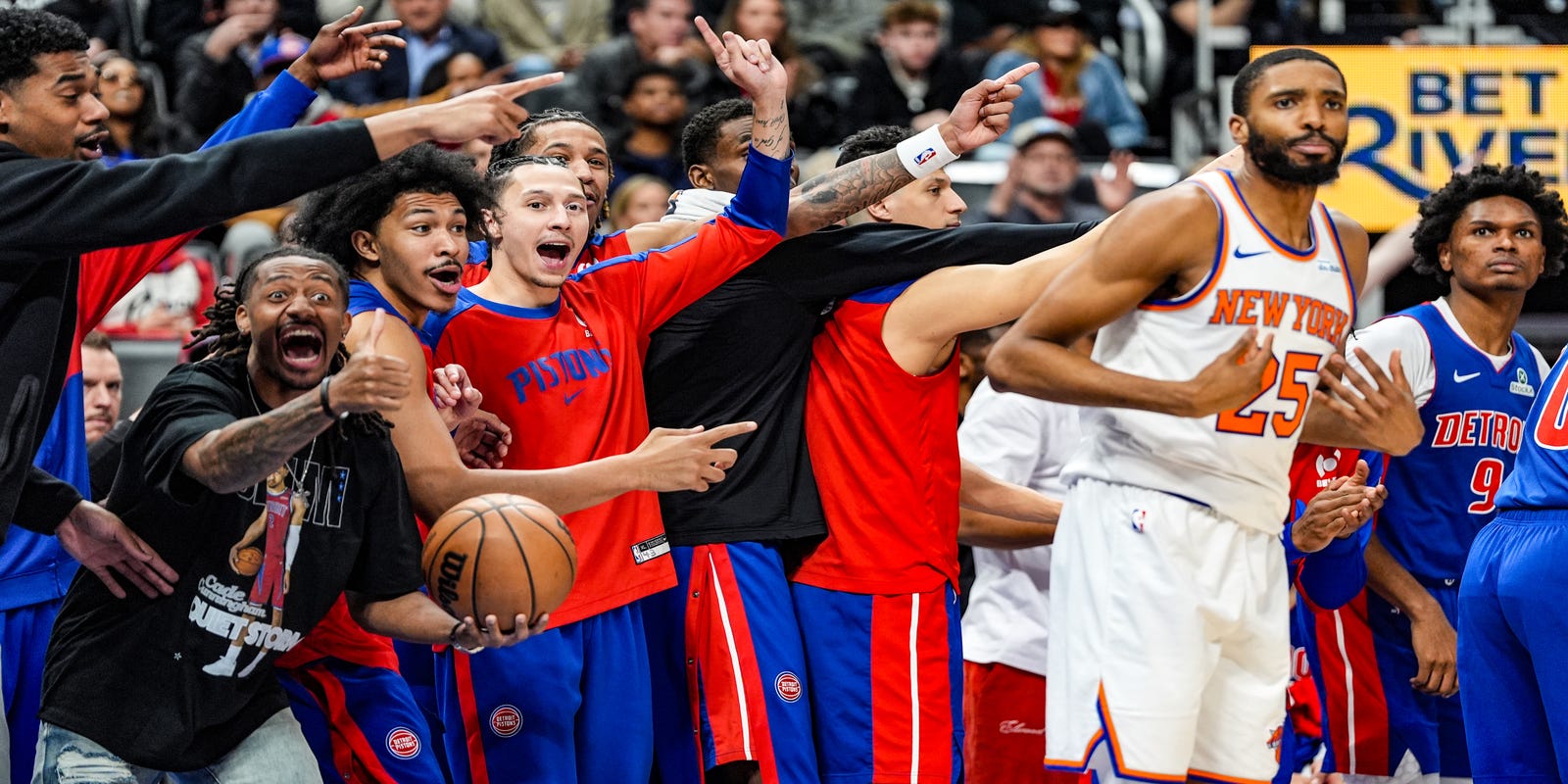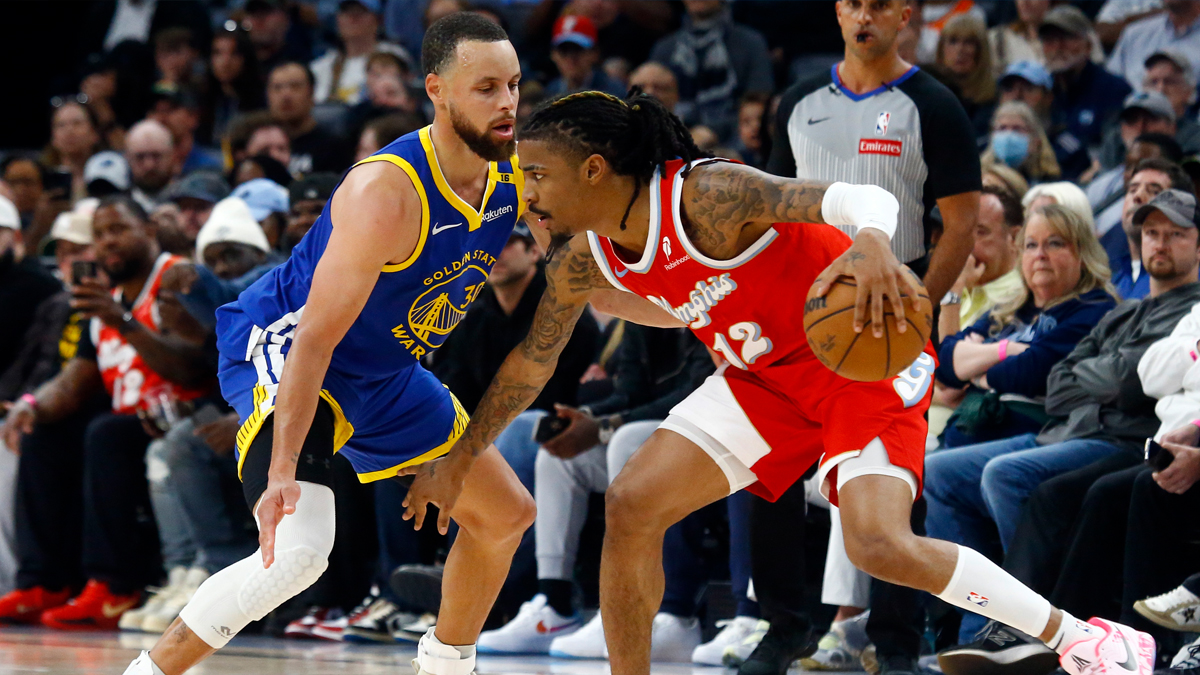
Three thoughts on the Utah Jazz’s 116-105 loss to the Minnesota Timberwolves from Salt Lake Tribune Jazz beat writer Andy Larsen.
1. Jazz wrap up worst record, top-5 pick
The least successful on-court season in Jazz history was extremely successful from a tanking point of view.
Most observers figured the Jazz would be too talented to tank to this degree this season. The Jazz’s over-under win total before the year was 28.5, good for fifth-lowest in the NBA. Detroit, Portland, Washington, and Brooklyn were all slated to be worse.
Detroit and Brooklyn both jumped thanks to new coaching staffs; the Pistons finished with 44 wins. Portland’s youth started to improve this year, and the Blazers ended up having a decently deep rotation. That left the Jazz to fight it out with Washington at the bottom.
The Wizards were a mighty tank opponent. They lost games by an average of 12.6 points per contest (compare that to Utah’s -9.3 average). Their best players — (formerly) Kyle Kuzma and Jordan Poole — are known to be largely empty calories. And they started a rookie point guard, Bub Carrington, for nearly the entire season.
But the Jazz met and exceeded Washington’s losing with a remarkable strategy of their own. They fully sat their best players, some for a majority of the season. They rested 23-year-olds. They tinkered with rotations to put inexperienced players in at the end of games. They played, even started, Cody Williams, though he was less ready than any player in recent NBA memory and may have been one of the worst rookies in the last 25 years.
It looked like this would come down to a tie, to be decided by a coin flip next week. Instead, the Wizards had one last surprise Sunday: a buzzer-beating win. Down four with under 10 seconds left, Justin Champagnie nailed a three, then Heat guard (and former Jazzman) Josh Christopher committed a backcourt violation. That left Carrington to hit a buzzer-beating, game-winning shot, as the Jazz’s front office cheered with abandon.
The win, and subsequent Jazz loss, ensured the Jazz a top-five pick in this draft. Where in the top five they draft will be determined by the lottery on May 12.
What a strange season. It’s good it’s finally over.
2. Keyonte George’s unusual day
Keyonte George had an extremely weird Game 82.
First of all, he played all 48 minutes. He became the second player all season long to play 48 in a regulation game, the first came two hours before, when Wizards guard AJ Johnson did the same. He became the 12th Jazz player to ever play 48, and the first since John Stockton since 1992.
The 48 minutes wasn’t the plan, but Jaden Springer’s back tightened up midway through the first quarter, so he couldn’t play more than six minutes. Technically, the Jazz had Collin Sexton available, but they had already decided to DNP-CD him for tanking reasons.
He also really struggled. It didn’t actually seem like the cause was fatigue; George’s worst stretch of the game was in the first half, when he shot 3-15 from the floor and added three turnovers in a 38-second stretch.
The biggest issue was the decision-making. George, when presented with longer defenders than him, seemed to relish the challenge of attacking them individually rather than finding others to score through.
I was curious if George typically struggled this season against good defenses, but it turns out that’s not the case. According to CleaningTheGlass, George actually plays more efficiently against top-10 defenses like Minnesota. His points per shot go up, as does his assist rate. He’s been impressive against those defenses this year.
“The efficiency thing is something that we are in the process of addressing, and it’s going to be a big part of this summer,” Jazz coach Will Hardy said about George. “It’s understanding, first and foremost, what shots are efficient in general — and secondly, what shots are efficient for him, and how can we generate more of those?”
Adjusting that mentality for George is going to be critical for his long-term NBA success. Jordan Clarkson, for example, extended his NBA career in a big way by turning his long twos into threes. For George, it’s probably more about limiting ball-handling errors and unlikely-to-succeed drives.
3. A Triple Team send-off
My first year doing the Triple Team was in 2013-14, which previously was the second-worst season in Jazz history as they accumulated a 25-57 record.
That was a rough season, too. I think it was actually harder to cover than this one despite eight more wins and more competitive basketball. The biggest reason was the personalities involved: While coach Ty Corbin was nice generally, he was pretty surly when answering questions about the losses or X’s and O’s. None of Gordon Hayward, Alec Burks, Derrick Favors, or Enes Kanter were great with the media. (Trey Burke actually was pretty interesting, and Richard Jefferson was super interesting.)
This year’s team is a lot easier to write about. I can always be assured of a good answer from Will Hardy, even when asking a difficult question. If I need a Triple Team point, I can just go back through his news conferences and find something interesting. And Lauri Markkanen, though he missed many games, was always available to talk about everything. He didn’t have to be candid here, but he was. The other players have been largely terrific too.
But when I’ve gone back and re-read those old Triple Teams from 11 years ago, one of the biggest things I’m struck by is just how far away the Jazz were then. Trey Burke’s strengths and weaknesses didn’t make an impact on the next good Jazz team; Diante Garrett played 1,000 minutes for the Jazz that year and then never played in the NBA again.
So many of things I wrote about ended up mattering very little. Meanwhile, the player that ended up mattering the most, Rudy Gobert, played nine minutes per game in just 45 appearances. 13 other players played more that year.
There’s so much we don’t know. Life is unpredictable; basketball especially so.
As much as we try to learn in these games, even studying them deeply, there’s a really good chance that what’s around the corner will be a surprise. That’s especially true given how much just straight luck plays a role — we saw that on October 28, when Taylor Hendricks randomly broke his leg jogging. We’ll see it again on May 12, when pingpong balls bouncing around suspended in air will determine whether all of this tanking was worth it.
I’ll be there on that day; I learned this week I’ll even be in the room where the actual lottery happens. (This means they’ll take my phone away from me during the lottery itself, making me slower to report, but I think the experience will be fascinating and should lead to some good stories.) In many ways, it’ll be the most consequential day in this iteration of Jazz basketball — fans could either be elated or hugely disappointed.
Speaking of fans, I have to thank each and every one of you who read the Triple Team this year. If you continued to do so, you’re part of a remarkable club of die-hards; the Jazz should legitimately give you an award for your loyalty.
If they don’t, I will. I’m so appreciative of your time and your support, and you all make an incredible job possible. Thank you, thank you all, so much.
Note to readers • This story is available to Salt Lake Tribune subscribers only. Thank you for supporting local journalism.


